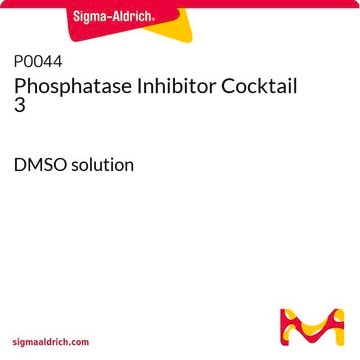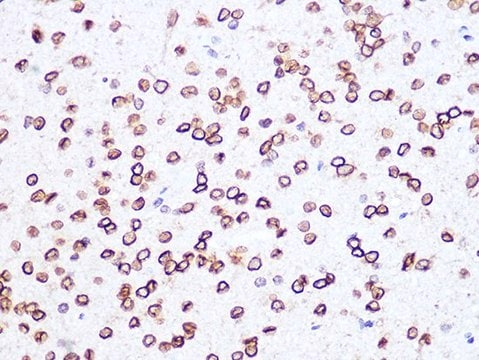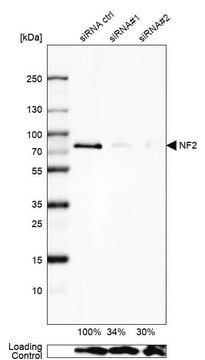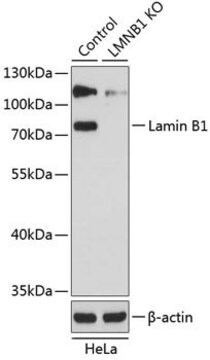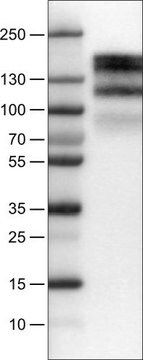SAB2702205
Monoclonal Anti-Lamin B2 antibody produced in mouse
clone GT144, affinity isolated antibody
Synonym(s):
LAMB2, LMN2
About This Item
Recommended Products
biological source
mouse
Quality Level
conjugate
unconjugated
antibody form
affinity isolated antibody
antibody product type
primary antibodies
clone
GT144, monoclonal
form
buffered aqueous solution
mol wt
68kDa
species reactivity
human
concentration
0.81mg/mL
technique(s)
immunohistochemistry (formalin-fixed, paraffin-embedded sections): suitable
immunoprecipitation (IP): suitable
indirect immunofluorescence: suitable
western blot: 500-3000
isotype
IgG2a
UniProt accession no.
shipped in
wet ice
storage temp.
−20°C
target post-translational modification
unmodified
Gene Information
human ... LMNB2(84823)
Related Categories
Immunogen
Application
Western Blotting (1 paper)
Biochem/physiol Actions
Features and Benefits
Other Notes
Physical form
Disclaimer
Not finding the right product?
Try our Product Selector Tool.
Storage Class Code
10 - Combustible liquids
WGK
nwg
Flash Point(F)
Not applicable
Flash Point(C)
Not applicable
Certificates of Analysis (COA)
Search for Certificates of Analysis (COA) by entering the products Lot/Batch Number. Lot and Batch Numbers can be found on a product’s label following the words ‘Lot’ or ‘Batch’.
Already Own This Product?
Find documentation for the products that you have recently purchased in the Document Library.
Our team of scientists has experience in all areas of research including Life Science, Material Science, Chemical Synthesis, Chromatography, Analytical and many others.
Contact Technical Service